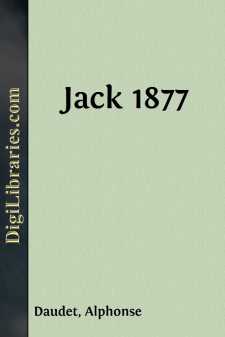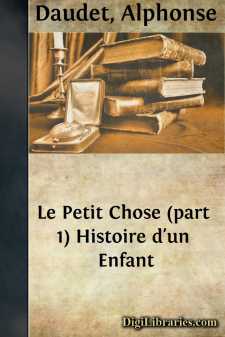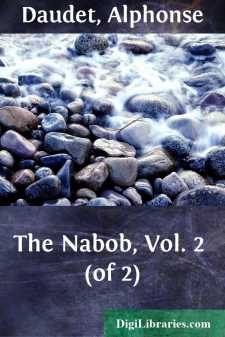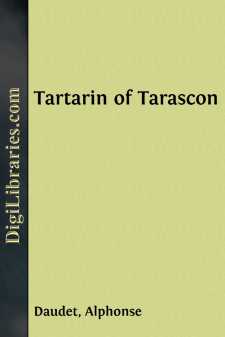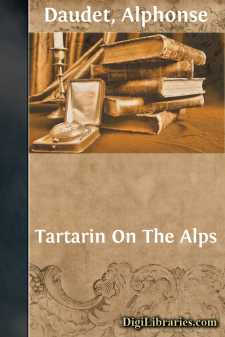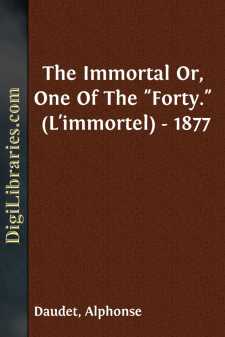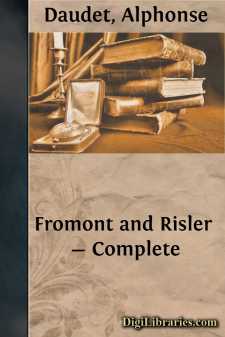Categories
- Antiques & Collectibles 13
- Architecture 36
- Art 48
- Bibles 22
- Biography & Autobiography 813
- Body, Mind & Spirit 142
- Business & Economics 28
- Children's Books 17
- Children's Fiction 14
- Computers 4
- Cooking 94
- Crafts & Hobbies 4
- Drama 346
- Education 46
- Family & Relationships 57
- Fiction 11829
- Games 19
- Gardening 17
- Health & Fitness 34
- History 1377
- House & Home 1
- Humor 147
- Juvenile Fiction 1873
- Juvenile Nonfiction 202
- Language Arts & Disciplines 88
- Law 16
- Literary Collections 686
- Literary Criticism 179
- Mathematics 13
- Medical 41
- Music 40
- Nature 179
- Non-Classifiable 1768
- Performing Arts 7
- Periodicals 1453
- Philosophy 64
- Photography 2
- Poetry 896
- Political Science 203
- Psychology 42
- Reference 154
- Religion 513
- Science 126
- Self-Help 84
- Social Science 81
- Sports & Recreation 34
- Study Aids 3
- Technology & Engineering 59
- Transportation 23
- Travel 463
- True Crime 29
Jack 1877
by: Alphonse Daudet
Description:
Excerpt
CHAPTER I.~~VAURIGARD.
"With a k, sir; with a k. The name is written and pronounced as in English. The child's godfather was English. A major-general in the Indian army. Lord Pembroke. You know him, perhaps? A man of distinction and of the highest connections. But—you understand—M. l'Abbé! How deliciously he danced! He died a frightful death at Singapore some years since, in a tiger-chase organized in his honor by a rajah, one of his friends. These rajahs, it seems, are absolute monarchs in their own country,—and one especially is very celebrated. What is his name? Wait a moment. Ah! I have it. Rana-Ramah."
"Pardon me, madame," interrupted the abbé, smiling, in spite of himself, at the rapid flow of words, and at the swift change of ideas. "After Jack, what name?"
With his elbow on his desk, and his head slightly bent, the priest examined from out the corners of eyes bright with ecclesiastical shrewdness, the young woman who sat before him, with her Jack standing at her side.
The lady was faultlessly dressed in the fashion of the day and the hour. It was December, 1858. The richness of her furs, the lustrous folds of her black costume, and the discreet originality of her hat, all told the story of a woman who owns her carriage, and who steps from her carpets to her coupé without the vulgar contact of the streets. Her head was small, which always lends height to a woman. Her pretty face had all the bloom of fresh fruit. Smiling and gay, additional vivacity was imparted by large, clear eyes and brilliant teeth, which were to be seen even when her face was in repose. The mobility of her countenance was extraordinary. Either this, or the lips half parted as if about to speak, or the narrow brow,—something there was, at all events, that indicated an absence of reflective powers, a lack of culture, and possibly explained the blanks in the conversation of this pretty woman; blanks that reminded one of those little Japanese baskets fitting one into another, the last of which is always empty.
As to the child, picture to yourself an emaciated boy of seven or eight, who had evidently outgrown his strength. He was dressed as English boys are dressed, and as befitted his name spelled with a k. His legs were bare, and he wore a Scotch cap and a plaid. The costume was in accordance with his years, but not with his long neck and slim figure.
He seemed embarrassed by it himself, for, awkward and timid, he would occasionally glance at his half-frozen legs with a despairing expression, as if he cursed within his soul Lord Pembroke and the whole Indian army.
Physically, he resembled his mother, with a look of higher breeding, and with the transformation of a pretty woman's face to that of an intelligent man. There were the same eyes, but deeper in color and in meaning; the same brow, but wider; the same mouth, but the lips were firmly closed.
Over the woman's face, ideas and impressions glided without leaving a furrow or a trace; in fact, so hastily, that her eyes always seemed to retain a certain astonishment at their flight....


